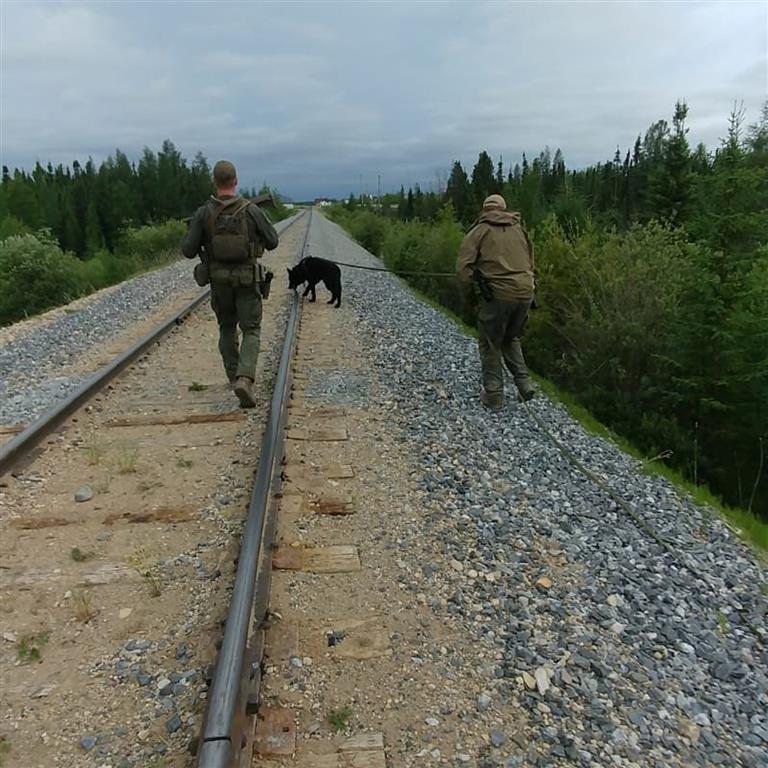
The Royal Canadian Mounted Police deployed a massive contingent of personnel and were assisted by Royal Canadian Air Force planes equipped with infra-red cameras and imaging radar to search 11,000 square kilometres around the town of Gillam and surrounding wilderness.
More than 500 homes and buildings were canvassed and train tracks, trails and other locations were searched but authorities have failed to make any confirmed sightings.
After eight days of no official sightings of Kam McLeod, 18, and Bryer Schmegelsky, 19, the RCMP raised the possibility the duo was dead or had left the area.
"I know that today's news is not what the families of the victims and the communities of northern Manitoba wanted to hear," Manitoba RCMP Assistant Commissioner Jane MacLatchy said on Wednesday (local time).
"But when searching for people in vast remote and rugged locations, it's always a possibility that they're not going to be immediately located.
"The terrain in northern Manitoba is immense.
"It's unforgiving.
"The weather is often very unpredictable.
"Additionally, there remains a possibility the suspects had some sort of assistance to flee the area."
McLeod and Schmegelsky are suspected of embarking on a killing spree two weeks ago in Canada's western province of British Columbia by shooting dead Mr Fowler, 23, from Sydney, and his North Carolina girlfriend, Chynna Deese, 24, on a remote highway.
Four days later, on another BC highway, the teenagers allegedly murdered botanist Leonard Dyck and then drove 3000km east across Canada's north to Gillam where on July 23, they dumped and then set fire to their car.
Along the way they had peaceful encounters with a petrol station attendant, a safety officer on a alcohol checkpoint and a man who helped them after their vehicle became stuck in mud.
All three did not realise at the time McLeod and Schmegelsky were fugitives.
MacLatchy denied the RCMP in Manitoba took too long informing the public, telling reporters within an hour of discovering the teens might be in Manitoba, they alerted the public via Twitter.
The withdrawal of resources will come in phases over the next week.
"To be clear, we are not ending this search," she said.
"A number of tactical resources and specialised assets will remain positioned in the Gilliam area, and will continue the efforts to locate the murder suspects."
Survival experts and Gillam locals said if the teenagers attempted to hide in the wilderness and did not have the appropriate gear or shelter for the swampy sub-Antarctic boreal forest, they would likely die from blood-sucking insects, tainted water, starvation, bears and other predators.
RCMP search teams had dogs attempting to find their scent but MacLatchy said she was not sure if the dogs were trained to find dead bodies.
"It's just a very tough place to find somebody who doesn't want to be found," MacLatchy said.
McLeod and Schmegelsky were described by family members as "good kids" who quit their Walmart jobs on Vancouver Island to drive north to the Yukon to find work.
The teens instead allegedly went on the killing spree.












